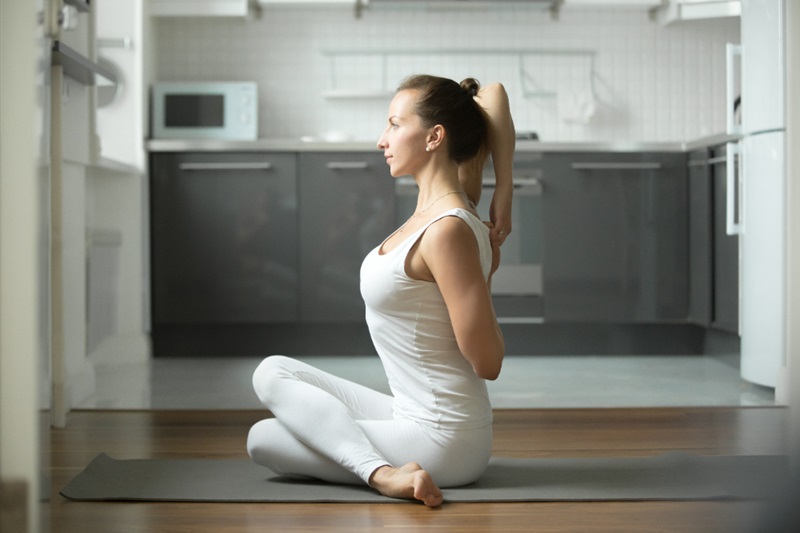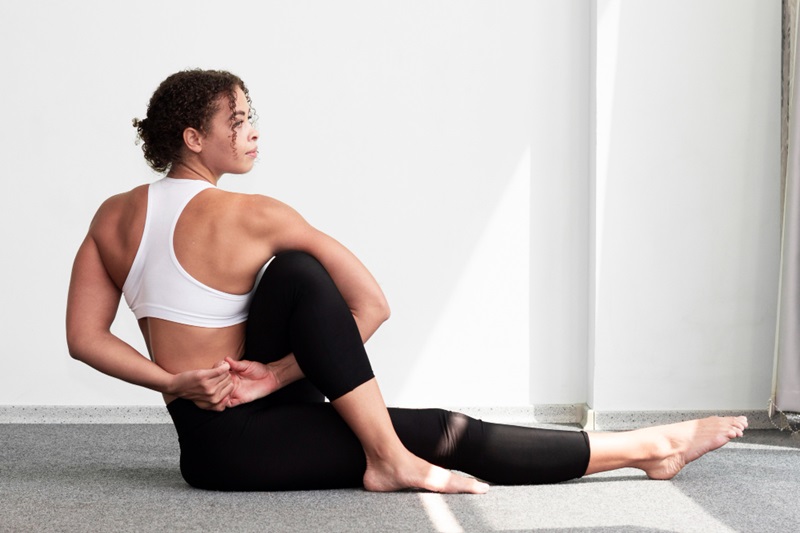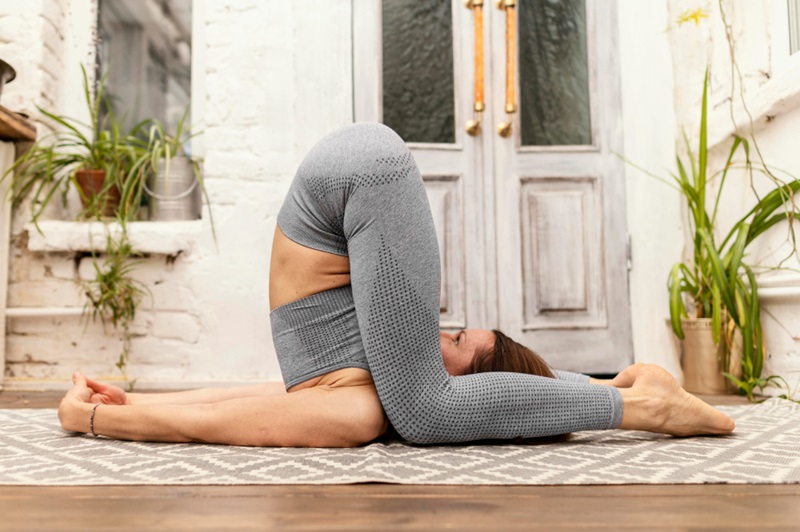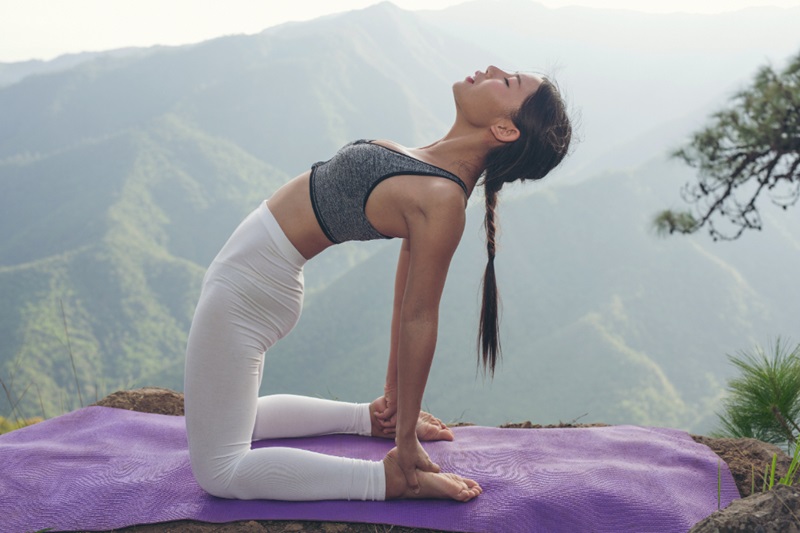Good posture is more than just standing tall. It is about how your body aligns and supports itself during movement and rest. Poor posture can lead to discomfort, fatigue, and even reduced self-esteem. Yoga offers a practical solution to correct alignment and build self-confidence. By focusing on balance, flexibility, and strength, yoga not only enhances physical well-being but also instills a sense of empowerment. This article explores how yoga can transform your posture and improve your confidence, highlighting key practices and benefits that make it an essential part of a healthier lifestyle.
The Connection Between Posture and Confidence
Your posture impacts how you feel and how others perceive you. Slouching or hunching over can signal insecurity, while standing upright exudes confidence. Research shows that proper alignment positively influences body language and mental state.
Yoga trains your body to adopt better alignment through mindful movement. Regular practice strengthens core muscles, lengthens the spine, and aligns the shoulders, helping you naturally maintain an upright posture. This physical shift can translate into a psychological boost, making you feel more self-assured in daily interactions.

How Yoga Improves Posture
Yoga targets the root causes of poor posture, such as muscle imbalances and lack of flexibility. Here’s how specific aspects of yoga contribute to better posture:
-
Strengthening Core Muscles
Core strength is essential for maintaining an upright position. Poses like Plank, Boat Pose, and Warrior III engage the abdominal and back muscles, providing the support needed for a healthy posture.
-
Opening Tight Shoulders
Many people develop rounded shoulders due to desk work or prolonged screen time. Poses like Downward Dog, Bridge Pose, and Cow Face Pose stretch the chest and shoulders, counteracting these effects.
-
Aligning the Spine
Yoga focuses on spinal alignment through poses like Mountain Pose, Cobra Pose, and Child’s Pose. These practices encourage the spine’s natural curvature, reducing strain on the back and neck.
-
Increasing Flexibility
Flexibility plays a crucial role in maintaining good posture. Poses such as Forward Fold and Seated Twist gently stretch tight muscles, allowing for greater mobility and ease of movement.

Yoga and Confidence: The Psychological Benefits
Beyond physical alignment, yoga influences your mental and emotional state. Here’s how:
-
Boosting Self-Awareness
Yoga encourages mindfulness, helping you become more aware of your body and posture. This awareness allows you to correct slouching or misalignment during the day.
-
Reducing Stress
Stress can lead to tension in the body, affecting posture. Yoga’s focus on deep breathing and relaxation techniques helps release physical and mental stress, promoting a more composed demeanor.
-
Improving Body Image
Yoga fosters a positive relationship with your body. As you notice improvements in strength, flexibility, and posture, your self-esteem naturally increases, making you feel more confident.
Essential Yoga Poses for Better Posture
Here are some yoga poses that directly target posture improvement:
Mountain Pose (Tadasana)
- Teaches alignment and balance.
- Strengthens the legs and core.
- Encourages an upright stance.
Cat-Cow Pose (Marjaryasana-Bitilasana)
- Improves spinal flexibility.
- Relieves tension in the back and neck.
- Encourages fluid movement in the spine.
Plank Pose
- Builds core strength.
- Supports spinal stability.
- Enhances overall body strength.
Bridge Pose (Setu Bandhasana)
- Opens the chest and shoulders.
- Strengthens the back and glutes.
- Improves spinal alignment.
Child’s Pose (Balasana)
- Relaxes the lower back.
- Stretches the hips and spine.
- Encourages a neutral alignment.
Building a Regular Yoga Routine
Consistency is key to reaping the benefits of yoga for posture and confidence. Here’s how to build an effective routine:
- Start Small: Begin with 10–15 minutes of yoga daily, focusing on foundational poses.
- Include Variety: Combine strength-building, flexibility-enhancing, and restorative poses.
- Practice Mindfulness: Pay attention to your body’s alignment during each pose.
- Seek Guidance: Join a class or use trusted online tutorials for proper form and technique.

Common Mistakes to Avoid
While yoga is highly beneficial, incorrect practice can hinder results. Avoid these common mistakes:
- Overstretching: Stretch within your limits to prevent injury.
- Neglecting Breathing: Focus on deep, controlled breaths to enhance each pose.
- Rushing Through Poses: Move slowly and mindfully to allow your body to adjust.
- Skipping Warm-Ups: Prepare your body with gentle stretches to prevent strain.
Incorporating Yoga Into Daily Life
Yoga isn’t limited to a mat session. Simple practices can be integrated into your routine:
- Desk Stretches: Do seated Cat-Cow or shoulder rolls during work breaks.
- Mindful Sitting: Sit with your back straight and feet flat on the ground.
- Standing Tall: Use Mountain Pose as a guide for your posture throughout the day.
FAQs About Yoga, Posture, and Confidence
- Can beginners practice yoga for posture?
Yes, beginners can benefit from yoga for posture. Start with basic poses like Mountain Pose and Child’s Pose, gradually progressing as you build strength and flexibility.
- How long does it take to see improvements?
Consistency is crucial. Most people notice posture improvements within a few weeks of regular practice.
- Can yoga help with chronic back pain?
Yoga can alleviate back pain by strengthening core muscles and improving spinal alignment. However, consult a healthcare provider before starting if you have chronic pain.
- Do I need special equipment for yoga?
A yoga mat is helpful, but you can practice on any non-slip surface. Blocks and straps can enhance flexibility but are optional.
- Can yoga improve confidence in social situations?
Yes, yoga’s focus on mindfulness and body awareness can enhance self-esteem, making you feel more confident in social interactions.
Transform Your Posture with Yoga
Yoga is a powerful tool for transforming posture and building confidence. Through consistent practice, it strengthens the body, improves alignment, and fosters a positive mental outlook. Whether you’re a beginner or an experienced practitioner, yoga offers accessible and practical solutions to enhance both physical and emotional well-being. By integrating yoga into your daily routine, you can achieve better posture, reduced stress, and a renewed sense of self-assurance. Start today to experience the difference a few mindful movements can make in your life.

